Sixties
City presents
a wide-ranging series of
articles on all aspects of the Sixties, penned by the creator of the iconic
60s music paper Mersey
Beat
|
Sixties
City presents
a wide-ranging series of
articles on all aspects of the Sixties, penned by the creator of the iconic
60s music paper Mersey
Beat
|
|||||
|
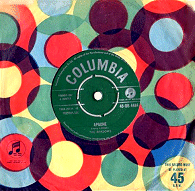
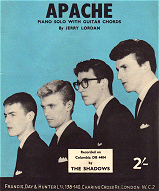 |
COLUMBIA
DB 4484, written by Jerry Lordan, produced by Norrie Paramor and recorded
by The Shadows, 'Apache' topped the British charts on 25th August 1960 where
it remained in the No.1 spot for five weeks. It gave The Shadows the first
of their many chart records and became their first million-seller, selling
one million copies in Britain alone. The number became a worldwide hit,
except in America, judged to be due to the fact that there was a dire lack
of promotion for it there. Capitol Records, although an American arm of
EMI Records, didn't consider British groups had any potential in the United
States (they felt the same when they rejected No.1 British hits by The Beatles!).
As a result, Danish guitarist Jorgan Ingmann covered it and his version reached No.2 in the US charts. Incidentally, Jorgen and his sister Grethe won the Eurovision Song Contest three years later). Interestingly enough, over the years there have been three different versions of 'Apache' that have reached the American charts, including a rap version in 1982 by The Sugarhill Gang. In addition, the number has been recorded by dozens of artists ranging from The Ventures and Canada's The Falcons to Joshua Breakstone. 'Apache' was voted Top Record of 1960 in the New Musical Express Reader's Poll. At the same time, The Shadows were voted Britain's top instrumental group. It was the first of their series of hits. The Shadows at the time comprised the classic foursome of Hank B. Marvin (lead), Bruce Welch (rhythm), Jet Harris (bass) and Tony Meehan (drums). In addition to being Cliff Richard's backing group they had issued three records in their own right (two of them vocals) before the success of 'Apache', two of them under their original name The Drifters. They formed as The Drifters in 1958, but when their records were issued in America on Capitol, Atlantic Records placed an injunction on the name because they already had a group under contract called The Drifters, noted for hits such as 'Under The Boardwalk'. |
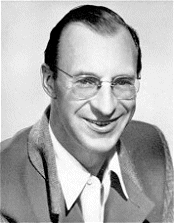 |
They
were on a package tour with Cliff in March 1960 when another artist on
the tour bus played them a number on his ukulele. His name was Jerry Lordan.
Hank was to comment; "We said it sounded a very good number and that we'd
record it when we got back to London." The number was called 'Apache'
and had been inspired by the film of that name starring Burt Lancaster.
Lordan commented, "I wanted something noble and dramatic, reflecting the
courage and savagery of the Indian." Bert Weedon had originally agreed
to record the number, but when Lordon heard it he was horrified and later
commented, "It's a dreadful version, he hasn't even played the music that
I wrote." Weedon later released his version as a single and it entered
the lower regions of the British charts.
Lordan attended the Shadows session at Studio 2 in Abbey Road on June 17th 1960. He said: "I found out to my horror that mine was scheduled to be the 'B' side. They'd only got three hours and they spent two hours and fifteen minutes on the 'A' side, which was good, but not as good as mine. I knew that. So then I had to sit on my hands for ten minutes while there was a break for tea. We came back, we had forty minutes left, then it was just pure magic, pure magic. It did not take many takes, three or four in two tracks only." Recording manager Norrie Paramor had originally decided that 'Apache' become the 'B' side, preferring a number called 'Quartermaster's Stores', although he might have been biased by the fact that this particular number was published by his brother's music publishing outfit. Fortunately, common sense prevailed and when the single was issued, 'Apache' was the 'A' side and launched The Shadows on a stream of major chart entries. Cliff Richard also had a presence on the track as a result of the fact that they wanted some Indian drums. Jerry Lordan explained, "Tony Meehan couldn't (do it), with only two tracks, and Hank and the others playing on the other track, Tony couldn't play the regular bass drum, the snare and the tom-tom and this Indian drum, which they didn't have anyway, so Norrie Paramor, the producer, said go and have a look, lads, in the prop room. This is Studio Two at Abbey Road, so there's a huge props room under the stairs stuffed full of ... cowbells - and you name it, and they came out with this Chinese drum. It's actually called a tam-tam, and it's circular with a rope on it, and you hold it in one hand and beat with a mallet with the other, and Cliff Richard held that over Tony Meehan's drum kit. That's him all the way through, Bom bom bom bom, Bom bom bom bom ... he kept great time, too" |
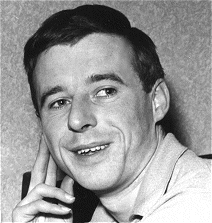 |
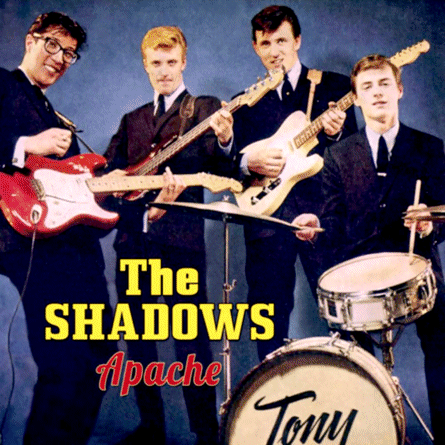 |
Hank
B. Marvin was born Brian Robson Rank on October 28th 1941 in Newcastle.
He changed his name by deed poll during the 1950s to Hank Brian Marvin.
Bruce Welch was born Bruce Cripps on November 2nd 1941 in Bognor Regis.
At the age of three he moved to Newcastle with his mother - and Welch was
his mother's name. Jet Harris was born Terence Harris in Kingsbury, London on July 7th 1939. He left The Shadows in April 1962 and was replaced by Brian Locking. Tony Meehan was born Daniel Joseph Anthony Meehan in Hampstead, London on March 2nd 1942. He left the group in 1961 and was replaced by Brian Bennett. Subsequently, Meehan was to team up with Jet Harris and they had major chart hits with 'Scarlett O'Hara' and 'Diamonds'. The Shadows and The Beatles In Britain, the two most influential bands of the 1960s were The Shadows and The Beatles. At The Beatles first recording session in Hamburg in 1960, the only original number they recorded was 'Cry For A Shadow', penned by George Harrison, which was his attempt to emulate The Shadows. Initially, The Beatles wore black leather. When Brian Epstein became their manager he took them to the Liverpool Empire to see a Cliff Richard and The Shadows concert. He pointed out the mohair suits, the choreographed foot movements and the way they bowed at the end of their act. He convinced The Beatles that this was how they should behave if they wanted to become a major group - and they took his advice. Hank Marvin was to say, "He was obviously trying to impress on John, Paul, George and Ringo that this was the way they should present themselves: in neat looking suits and dickie bows!" Hank was probably mistaken when he included Ringo in this comment as the group had jettisoned their black leathers before he joined them. The Beatles were soon dressed in mohair suits themselves, bowing politely at the end of their act. Cliff and The Shadows' line-up at the time comprised Cliff Richard (guitar/vocals), Hank Marvin (lead guitar), Bruce Welch (rhythm guitar) and Brian Bennett (drums). Following a gig at Lewisham Odeon on March 19th 1963 Bruce Welch invited The Beatles to a party he was holding. It was the first time that Cliff Richard and The Beatles had met. They were chatting together in Welch's kitchen, then got out their guitars, with Cliff and The Shadows playing their new release 'Lucky Lips' and The Beatles singing 'From Me To You'. They were to meet up again when both groups found themselves in Blackpool. The Shadows were appearing for a summer season at the ABC Theatre, but had Sundays off, and The Beatles were making Sunday appearances at the venue. The Shadows invited The Beatles to a bungalow that Hank Marvin had rented. Bruce was to point out, "The great thing was the lack of animosity or jealousy between the two groups and their mutual respect, both personal and musical." The Shadows were invited to Paul McCartney's 21st birthday party. Brian, Hank and Bruce travelled from Blackpool by car to meet up with Paul and Jane Asher at the Empire Theatre, Liverpool. They then travelled to Paul's Auntie Gin's house where the party was held. They were pleased to meet various Mersey artists such as The Fourmost and Billy J. Kramer and noticed how drunk John Lennon had become during the course of the evening - which resulted in him attacking the Cavern disc jockey, Bob Wooler. Despite the incident, The Shadows enjoyed themselves. Bruce was to comment, "In the future, though, the only brief encounters we had with The Beatles would be over a cup of tea and a sandwich at Abbey Road Studios or a quick thumbs-up and odd word of greeting at the annual NME poll winners concert." The Shadows issued a single in November 1981 featuring a medley which included 'Imagine' and 'Woman'. |
|
Article
Text
UK
web hosting by
|